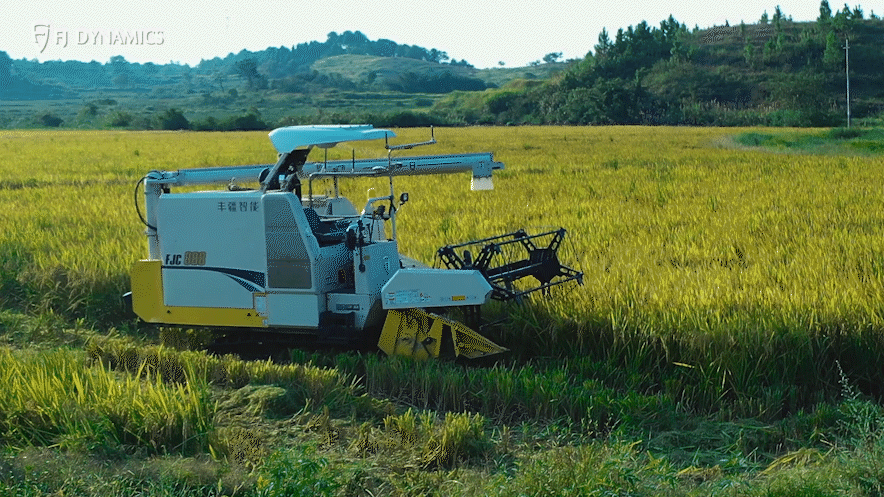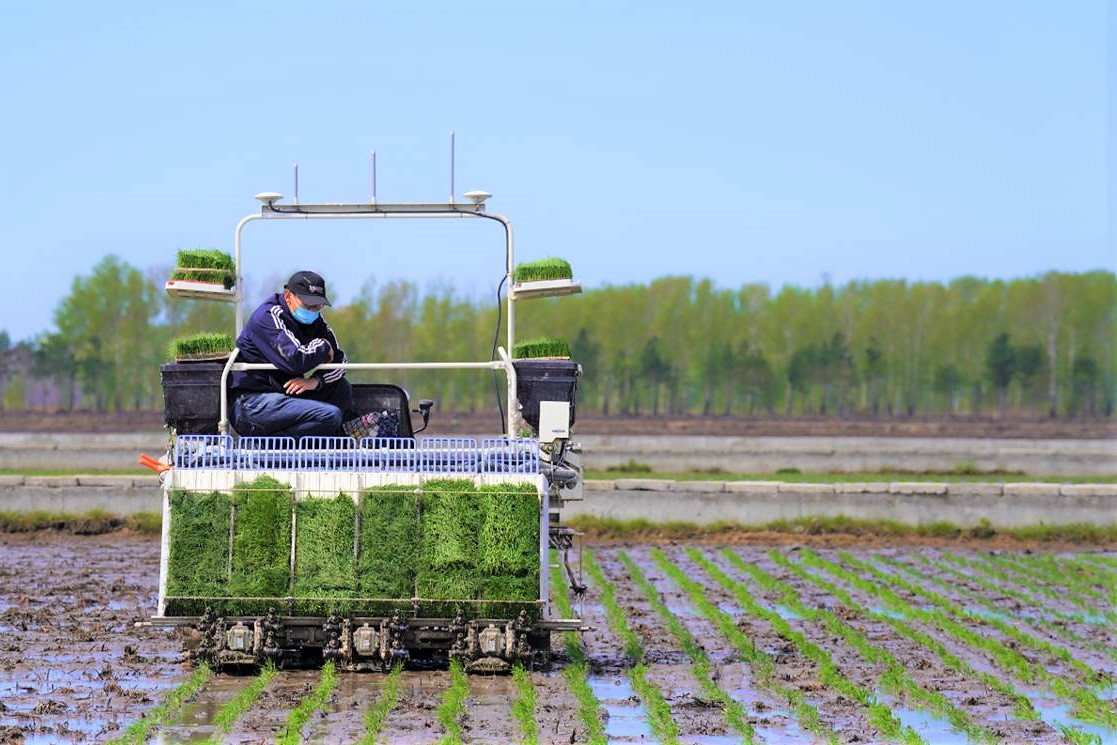
Transforming agriculture with the power of data
Helping farmers boost productivity and sustainability with AI and IoT
Global robotics company FJ Dynamics wants to transform traditional farming with the power of data. It has developed a range of smart machines to boost production and sustainability while reducing the risk to, and the physical demands on farmers.
For years, data has helped farmers decide when to plant, when to harvest, what types of crops to grow, how much fertilizer and other chemicals to use, and how often to irrigate.
Even so, farming has remained a largely inexact pursuit. It’s also a tough physical job for most of the world’s farmers who labor in the fields with tools and machinery.
FJ Dynamics specializes in artificial intelligence (AI), advanced manufacturing, and new energy. It is now using data, modeling, and automation to augment the decision-making and work farmers do.
Acting on data
Using Microsoft Azure Intelligent Cloud Platform, it has built an efficient and secure Internet of Things (IoT) platform. Autonomous vehicles and machines with sensors collect, analyze, and act on data. A digital 3D model of a farm is created and used to guide vehicles – like autonomous tractors – to move about and carry out work.

These digital solutions are not just for large farms; even smaller farms can benefit from this technology. With this centralized operational procedure, yields can be increased while reducing waste. The result means more efficient and sustainable farms.
In China, some farmers have deployed fully autonomous rice transplanters. Firstly, a rice field is measured and digitally mapped. Then comes a process of “path-planning,” which generates an optimized path for the rice transplanter to follow as it sows hundreds of seedlings. Meanwhile, sensors on the rice transplanter measure soil nutrient levels and decide when fertilizer should be added. This helps prevent wasting fertilizer while ensuring the soil’s optimal nutrient composition for growing the rice crops.
Not all clouds are the same
FJ Dynamics settled on Microsoft Azure because it is a comprehensive cloud platform covering a wide range of IoT applications. Microsoft’s global reach was also a factor.
The technology provided by FJ Dynamics can be found all over China. The company has also established footholds in countries like Japan, Indonesia, Zambia, Turkey, Argentina, Sweden, and Denmark. Microsoft has also been supporting FJ Dynamics plans to expand worldwide.
Using Microsoft’s Azure also means a farm’s precision data can be easily retrieved and used repeatedly. So long as they are operating on the same plot of land, the data is available. All the farmer needs to do is download the map from Azure Cloud, and their smart vehicles, like the rice transplanter, can commence operations.
“Once you set up a 3D model of the farm, you don’t need to modify it until you do some modification or construction work that alters the plot,” explains FJ Dynamics CEO James Wu. “So you can use it for many years.”
Freed from uncertainty and risks
Utilizing data-powered smart vehicles also helps in risk management. Growing crops like rice requires farmers to follow strict schedules. Doing otherwise, say because of a labor shortage, can spell disaster for yields.
Smart machines can also take on some tasks that can be hazardous for people. For example, pesticides and herbicides can be sprayed automatically and with more precision, reducing the amount of chemicals needed.
Wu is also hopeful that automation will reduce some of the hard, physical work on farms and so make farming life more attractive. The COVID-19 pandemic revealed that food security is crucial. With smart technology to improve both the productivity and working conditions in the agricultural sector, he hopes more people will enter the industry.
Working efficiency improves
One Chinese farmer, who produces mainly cotton and soybean, says, “Our working efficiency has improved by 10% since adopting FJ Dynamics smart robots. Since these autonomous agriculture robots can work for 24 hours, it helps reduce the time I spent laboring out in the harsh conditions of the field. Now I can relax and have more time to enjoy my personal life.”
As of now, these products are sold directly to the farms, but Wu says that they are exploring the possibility of setting up a rental business model to cater to a broader market.
Above all, this joint partnership between FJ Dynamics and Microsoft is driven by a shared vision to create a better world for people through technology. “We are fully aligned with Microsoft’s mission of empowering others. We want to improve the lives of people around the world with technology,” says Wu.














